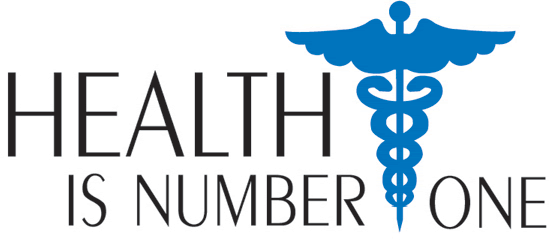Health Library ~ Family Medicine in Mullica Hill, NJAll Material copyright Craig M. Wax, DO unless otherwise denoted. EATING DISORDERS
We live in a weight-conscious society where thin is in and anything other than skinny is just not pretty. If you don't believe this, flip on the television or head to the movies, where you will see actress upon actress wearing the perfect size 3. Or, pick up any fashion magazine and read the feature article about the latest ultra-thin modeling sensation. Society's attitude toward thinness is having a dramatic and negative effect upon young women in the United States. According to the American Anorexia Bulimia Association, Inc. (AABA), 50 percent of 9-year-old girls and 80 percent of 10-year-old girls have dieted. In addition, it is estimated that more than five million Americans suffer from anorexia nervosa, bulimia nervosa, and binge eating. Of these five million, more than 1,000 will die yearly as a result of their eating disorders. Anorexia Nervosa "Many anorectics feel drawn to this behavior due to a very traumatic emotional event in their lives," states Carol Henwood, D.O., an osteopathic family practitioner who practices in Pennsylvania. "The hidden cause, however, is that these patients are actually battling poor self-esteem and are seeking to improve their feelings and take control of their lives." According to Dr. Henwood, some of the signs and symptoms of anorexia nervosa include: * Depression or anxiety * Distorted body image * Lack of a menstrual cycle * Hyperactivity * Constipation * Growth of fine body hair * Dry hair and brittle nails * Joint swelling * Loss of muscle and body fat According to Dr. Henwood, some the effects of starvation are: * Low body temperature * Low blood pressure * Slowed metabolism and sluggish reflexes * Irregular heartbeat (which can lead to heart failure) In addition, after the loss of the body's normal fat padding, anorectics may find it difficult and painful to sit or lie down, thereby making sleep difficult. This only worsens their depression and feelings of physical weakness. Bulimia Nervosa While a young woman suffering from anorexia may be easily identified because of her rapid weight loss, the signs and symptoms of bulimia are often difficult to recognize. The reason for this is that bulimics often maintain a normal body weight. Bulimics appear to be healthy, happy, and striving for perfection-even though their bulimia is causing unseen damage to their bodies. Behind the mask, bulimics often suffer from the same mentally crippling problems as anorectics. This can include low self-esteem, poor body image, depression, and an obsessive need to take control over their lives. In addition, many people with bulimia suffer from other compulsive disorders, such as shoplifting, smoking, drinking, and drug abuse. The symptoms of bulimia nervosa can include: * Mood swings, depression, or feeling out of control * Vomiting blood * Loss of tooth enamel * Swollen glands in the neck and face * Broken blood vessels * Stomach pain * Weakness * Sore throat Medical consequences of bulimia can include: * Dehydration * Damage to bowels, liver, and kidneys * Electrolyte imbalance which can lead to irregular heartbeat or heart failure "The most important thing to keep in mind when it comes to anorexia and bulimia is that the effects of these diseases can be life-threatening," stresses Dr. Henwood. "An individual battling either one of these disorders must seek immediate help." Getting Help Currently there is not a specific medication that can be prescribed to cure eating disorders, however, many physicians are finding success with anti-depressants. Although anti-depressants can help, Dr. Henwood stresses that recovery cannot happen until the individual is ready to make a change. As physicians who emphasize prevention and wellness, D.O.s strongly support the U.S. Department of Health and Human Services Healthy People 2010 initiative in the quest to improve quality of life and increase the number of years of a healthy life. For more information on osteopathic medicine, or to locate a D.O. in your area, call the AOA at 1.800.621.1773, ext. 8252 or visit the AOA's Web site at www.aoa-net.org. Did You know...? * More than five million Americans suffer from eating disorders. * 15 percent of young women have unhealthy eating attitudes and behaviors. * Anorexia nervosa has the highest mortality rate of any psychiatric condition. * Up to 5 percent of U.S. college women are bulimic. * Approximately 1,000 women die of anorexia each year.
Sources: American Osteopathic Association, American Anorexia/Bulimia Association, Inc., and the National Association of Anorexia Nervosa and Associated Disorders. You can contact these organizations for additional information: American Anorexia/Bulimia Association, Inc.
National Association of Anorexia Nervosa and Associated Disorders
|
|





